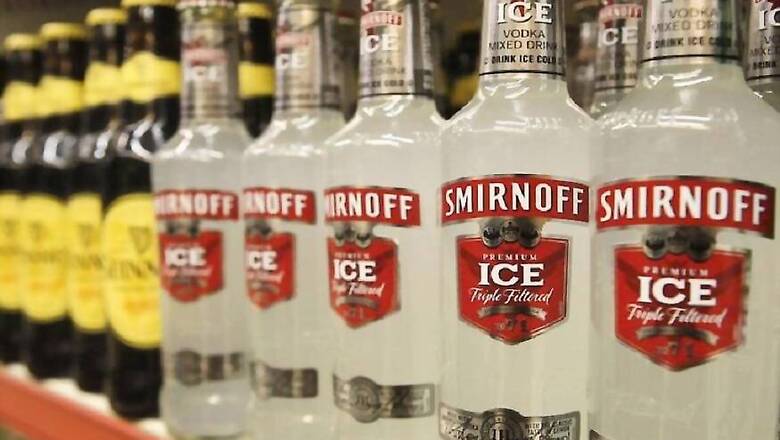
views
 John G Martin didn't have a clue on how he could sell a vodka he had purchased in 1938. For America drank mostly whiskey.
John G Martin didn't have a clue on how he could sell a vodka he had purchased in 1938. For America drank mostly whiskey.
Martin met his friend Jack Morgan, owner of Hollywood's Cock'n Bull restaurant, who had a different problem. He had a stash of ginger beer he couldn't get rid of. Why not toss the problems together and create a solution!
The duo started experimenting by mixing their vodka and the ginger beer, adding a bit of lemon. The famous cocktail Moscow Mule was born.
Once he tasted success, Martin began to hop around bars all across America with a polaroid camera requesting bartenders to make the new cocktail while he captured them in action. Leaving a copy behind, he would take the original pic to the next bar to convince barmen how the world had suddenly gone crazy over a new drink, a Russian vodka he had with him. Wouldn't you too want to join? He asked while flipping out the polaroid camera from his bag. Sales began to rocket.
But don't assume that the vodka Martin had been taking around the country was new to such marketing strategies.
Seventy years ago, in 1864, when it was born in Russia, its creator, Pyotr Smirnoff faced challenges on similar lines. The biggest of which was his poor status as a serf.
Though his vodka was made from the finest ingredients and had gone through filteration processes that the industry had never seen, Pyotr knew if he had to break the barriers he must not give a hoot to the conventional strategies of selling it. He was one of the first to make advantage of advertising products in newspapers. He gave panhandlers food and drink at his home in exchange for spreading the word about his hooch. They must visit bars all across the country demanding for Smirnov vodka.
Pyotr could grease the palms of the local clergymen to keep them away from preaching anti-vodka sermons, but the anti-alcohol campaigns of writers like Leo Tolstoy and Anton Chekhov always remained a headache for Pyotr.
The man knew it was high time he took Smirnov beyond the reach of the poor and the rabble. In 1877, through sustained efforts, Smirnov became purveyor to the Imperial Court, earning him the right to add the Tsar's coat of arms to his vodka's label. By the end of the century his company had 25,000 employees in various branches including the ones in Paris, New York, and London. Now as a respected nobleman, nobody in Russia remembered Pyotr's past as a serf.
So what happened at the beginning of the 20th century that pitched such a vodka from the dizzying heights of its success down to the grimy gutters of anonymity so that John G Martin had to resort to all kinds of bizarre measures of marketing it lift it back again?
The bolshevik revolution.
Even before the communists stormed to power, the tsarist regime took over vodka production in Moscow dealing a massive blow to the business. Pyotr had already bequeathed the company to his sons when the bolsheviks took over. Vladimir Smirnov, Pyotr's son was arrested and even produced before the firing squad for at least three times, quite theatrically, before he finally escaped to Turkey. A new company was registered in Europe assuming the name 'Smirnoff' (last sound changed due to French influence).
But Vladimir, unlike his father, was no marketing strategist. Smirnoff fell on hard times. Rudolph Kunett who acquired the US rights in 1933 found that his choice was a mistake as Americans expressed no intention to give up their dear whiskey for a new drink, flavourless and colourless, coming from the land of tsars. So he promptly sold his rights to John Martin's alcohol company, Heublein.
Along with the new cocktail, Moscow Mule, John Martin concocted along with his friend Jack Morgan, and with the strategy of spreading photographs of famous bartenders making it, Martin had other plans too. He hit a raw nerve promoting Smirnoff as "White whiskey - no smell, no taste."
American drinkers took notice.
(Manu Remakant is a freelance writer who also runs a video blog - A Cup of Kavitha - introducing world poetry to Malayalees. Views expressed here are personal)



















Comments
0 comment